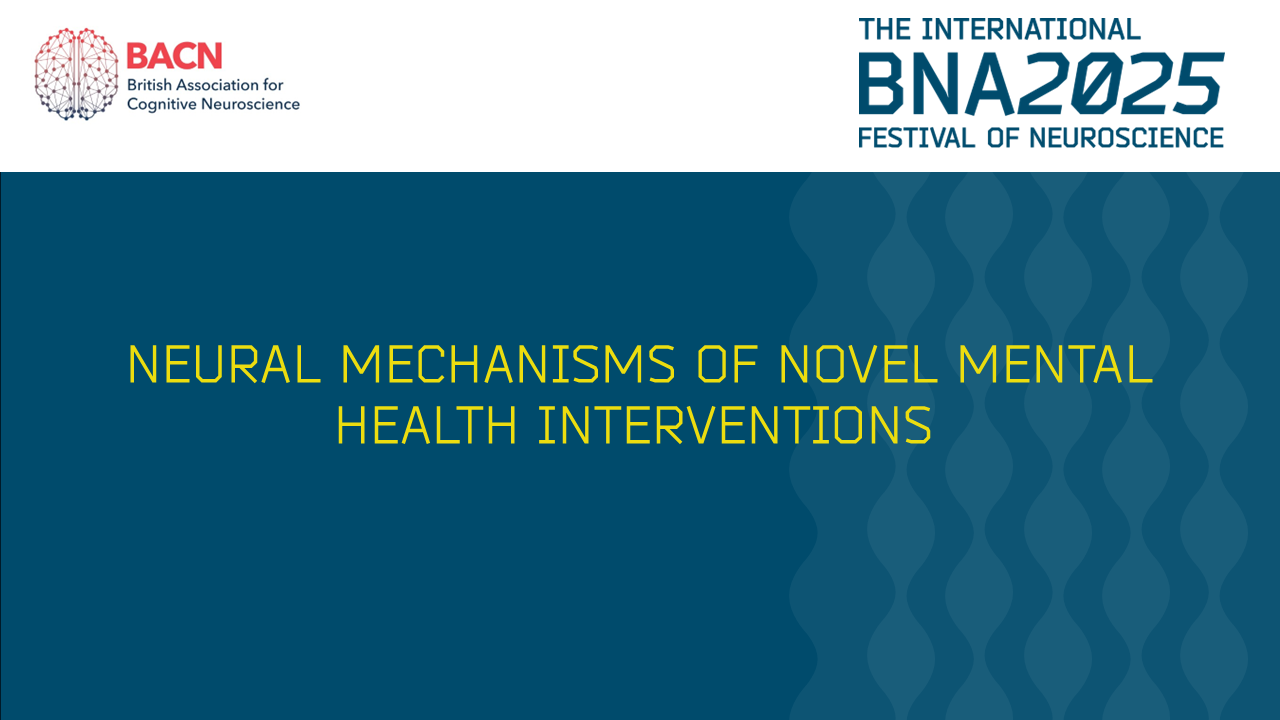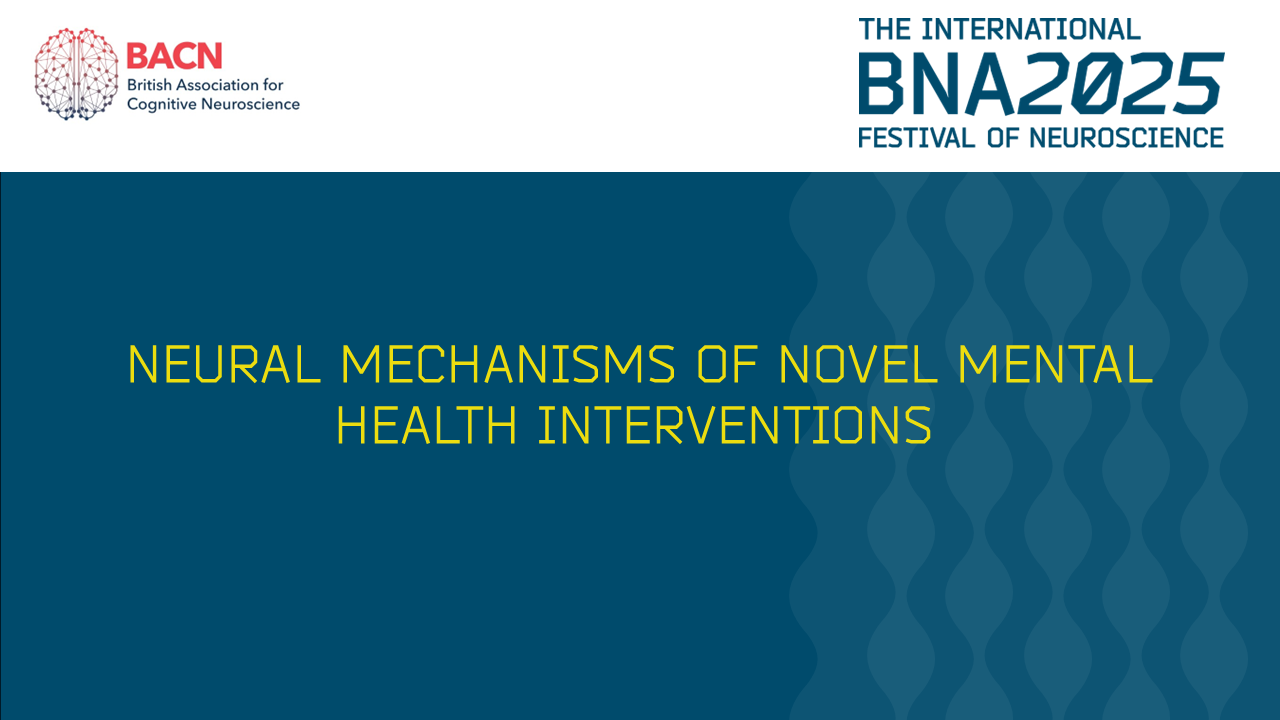

S26: Neural mechanisms of novel mental health interventions
Information
Convened by British Association of Cognitive Neuroscience (BACN)
This British Association for Cognitive Neuroscience (BACN) sponsored-symposium will showcase how varied cognitive neuroscience methodologies can be leveraged to develop insight into mental health symptoms, and identify new treatment approaches. The session will follow a traditional BNA symposium format of 4 speakers. Each will showcase a different cognitive neuroscience method, mental health application, and treatment intervention. Firstly, ECR Suksasilp will cover the anxiolytic effects of body-based interoceptive training, and how Bayesian computational modelling of interoceptive learning produces phenotypes that explain treatment response and mechanisms, informing future mental health interventions that target interoceptive processes. Secondly, mid-career researcher Nord will outline the utility of biological augmentations of psychological therapy, which capitalises on the underlying neural mechanisms of psychological therapy to acutely enhance its clinical efficacy using approaches including brain stimulation and psychopharmacology. Next, senior researcher Jackson will highlight how mu-band oscillations in the primary motor cortex, as identified through electroencephalography (EEG), are a key mechanism underlying tics in Tourette syndrome. An exciting new therapeutic approach that entrains such oscillations – median nerve stimulation via a wrist-worn device – has been shown to help reduce tics in clinical trials. Finally, mid-career researcher Rae will demonstrate interactions between brain function, physical health, and work-related burnout. Big fMRI data from the UK Biobank are revealing biomarkers of working long hours, and early results from trials of the 4 day working week suggest that improved mental health could be mediated by improved brain function.
- Chair: Chatrin Suksasilp: Interoceptive training reduces anxiety and increases cardiac precision weighting in neurotypical and autistic adults
- Dr Camilla Nord: Translating insights from neuroscience into acute augmentations of psychological therapy
- Professor Stephen Jackson: Developing wearable neuromodulation based upon peripheral nerve stimulation to suppress tics in tic disorder
- Dr Charlotte Rae: How does a 4 day working week change mind, brain, and body? Insights from occupational neuroscience


